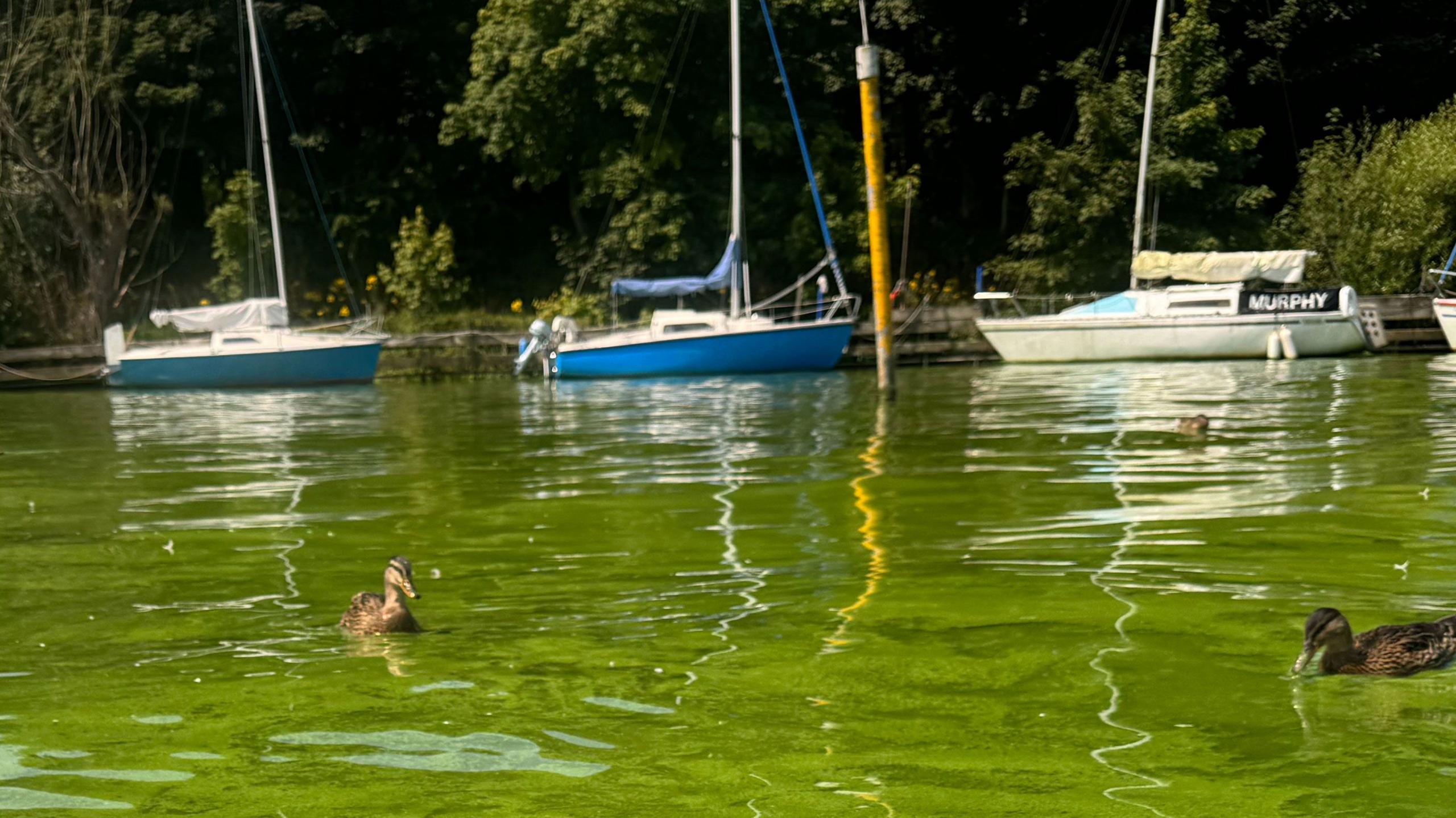Three firms selected for Lough Neagh space project
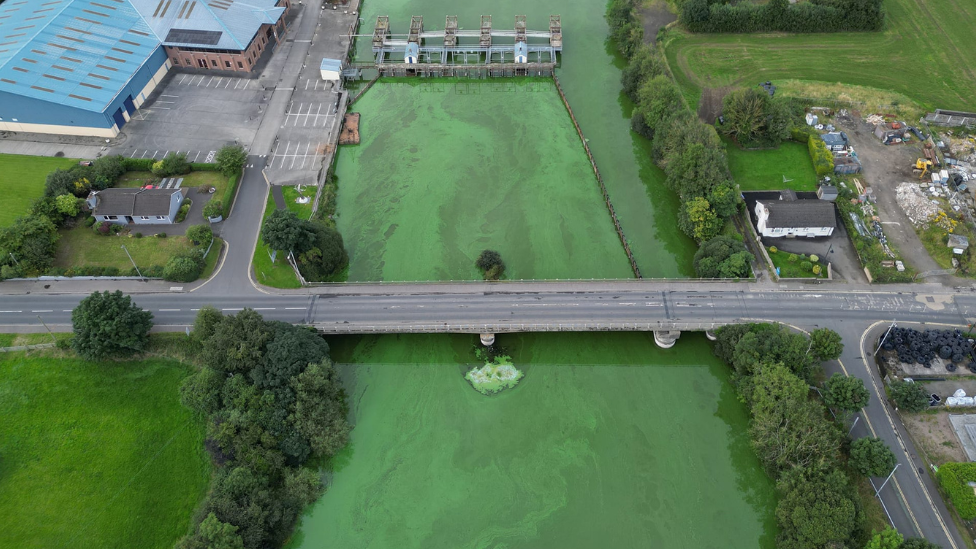
The three companies will develop satellite technology and data that could be used to improve detection and monitoring of blue-green algae in waterways across Northern Ireland
- Published
Three companies have been selected for the first phase of a project to monitor Lough Neagh from space.
They each get a share of £360,000 to develop satellite technology and data that could be used to improve detection and monitoring of blue-green algae in waterways across Northern Ireland.
Proposals from Newcastle University, 3-DEO and Plastic-i were successful out of 40 bidders.
NI SPACE cluster manager Robert Hill said space technology offered many opportunities for addressing environmental issues.
Pioneering space technology
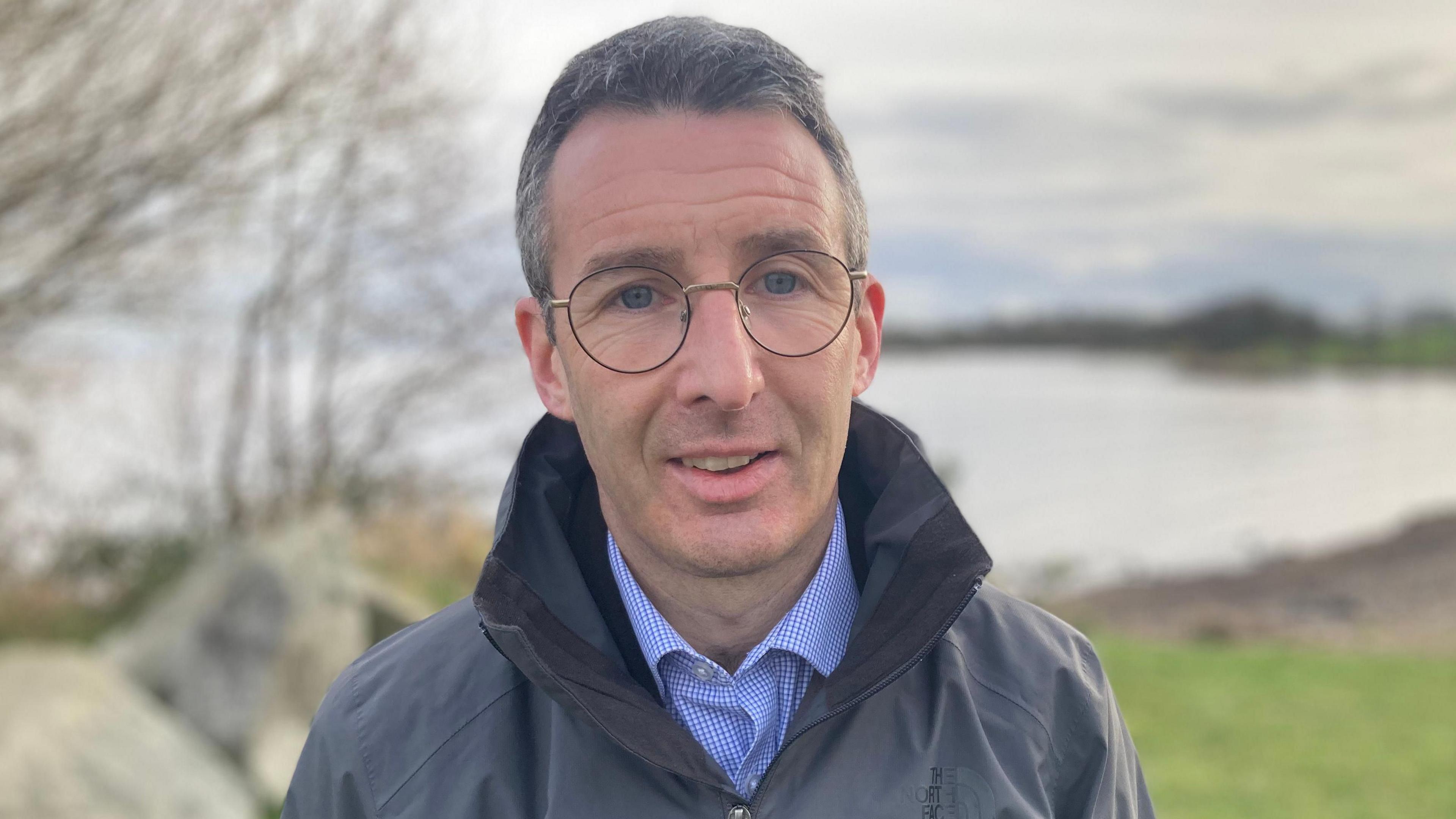
The Lough Neagh Action Plan was launched by the agriculture minister, Andrew Muir, in July
"By investing in innovative solutions, we're aiming to demonstrate how advancements in space technology can drive better environmental monitoring, management and protection for the benefit of our communities and ecosystems," he added.
The project by Newcastle University is a water quality digital twin dashboard which will bring together space and time data on water quality along with the state of the lough's aquatic environment.
Satellite applications company 3-DEO has partnered with the University of Stirling for its HABIT project – Harmful Algal Bloom Intelligent Twin.
The platform will allow data to be used to make decisions on bloom management.
The third successful project is by specialist marine monitoring company Plastic-i, with subcontract work by MARBLE Aerospace.
It is called Bloomcast NI and will develop AI (artificial intelligence) models to predict or mitigate blooms.
The Small Business Research Initiative plays a part in the Lough Neagh Action Plan, launched by the Agriculture, Environment and Rural Affairs minister Andrew Muir in July.
He said the use of pioneering space technology represented "what will hopefully be a significant step forward in mitigating the challenges posed by blue green algae".
The bidders will now develop proof of concepts by March 2025, with potential further development in a second phase.
The competition is run by NI SPACE, in conjunction with the UK Space Agency and the Department of Agriculture, Environment and Rural Affairs.
Blue-green algae once again turned Lough Neagh bright green in Summer 2024, with detections on the North Coast in August after chunks of the blooms travelled down the Lower Bann River.
But unlike July 2023, there were no bathing bans as a result.
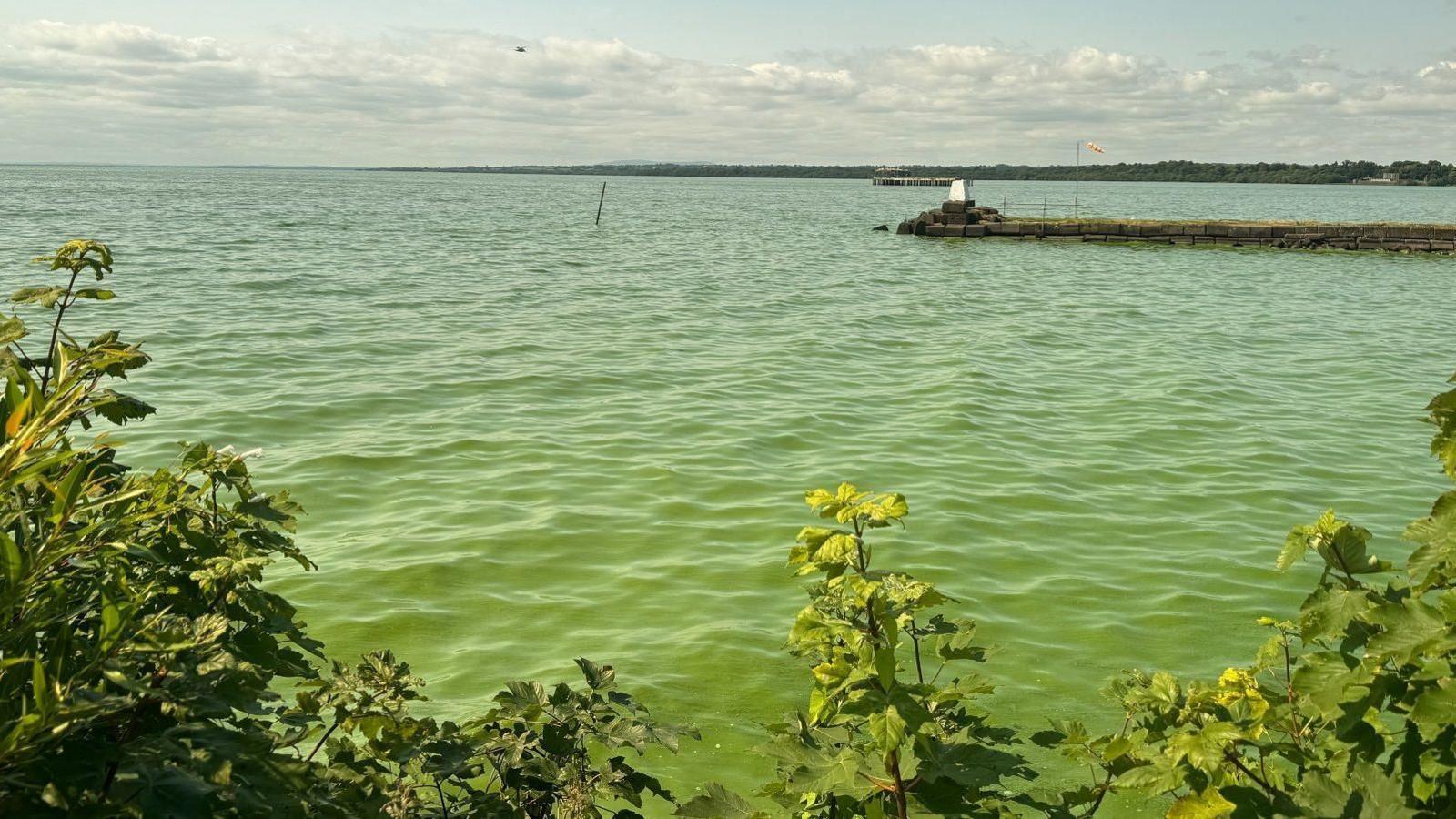
Lough Neagh supplies half of Belfast's drinking water and 40% of Northern Ireland's overall
Related topics
- Published10 October 2024
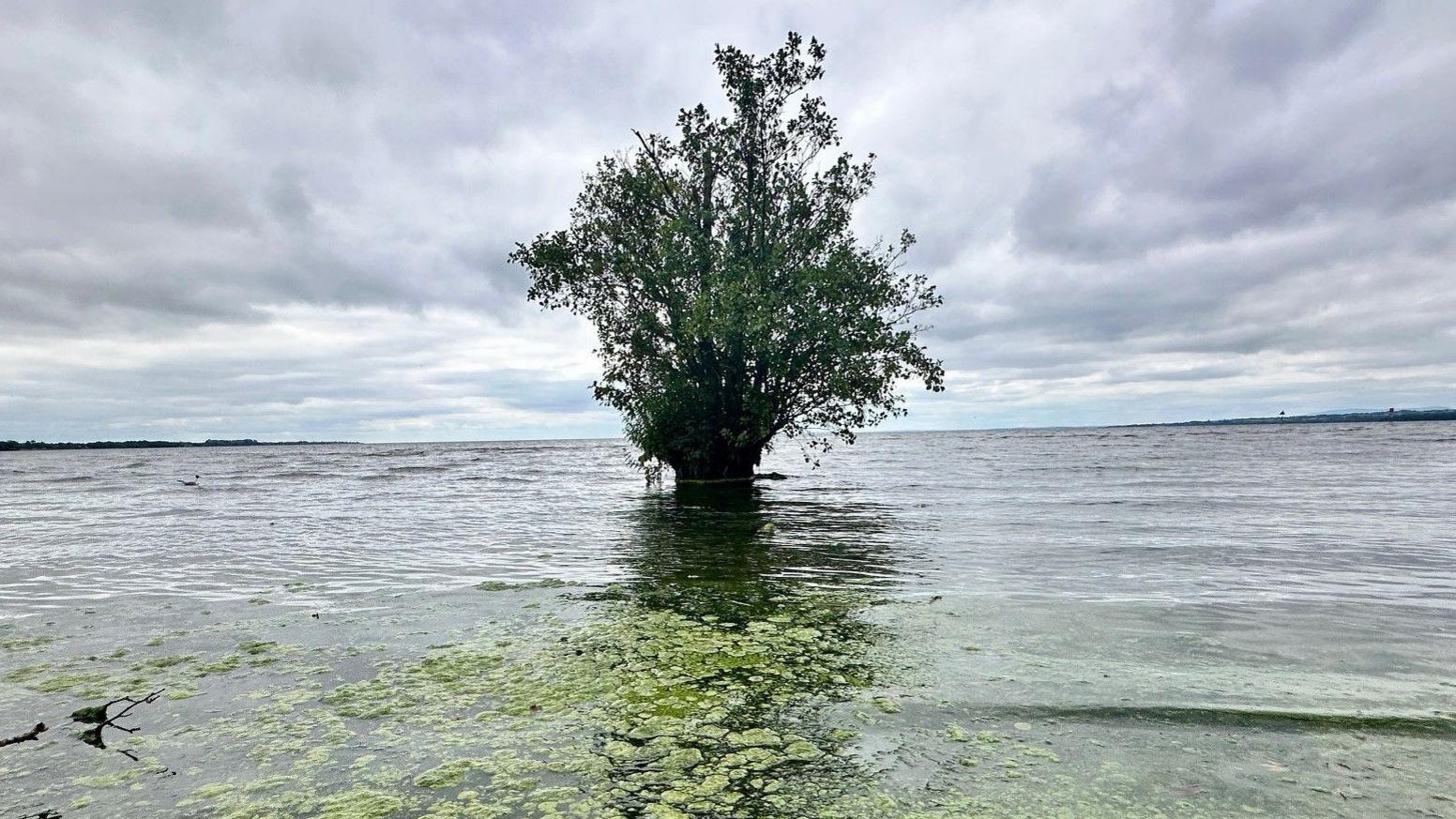
- Published5 August 2024
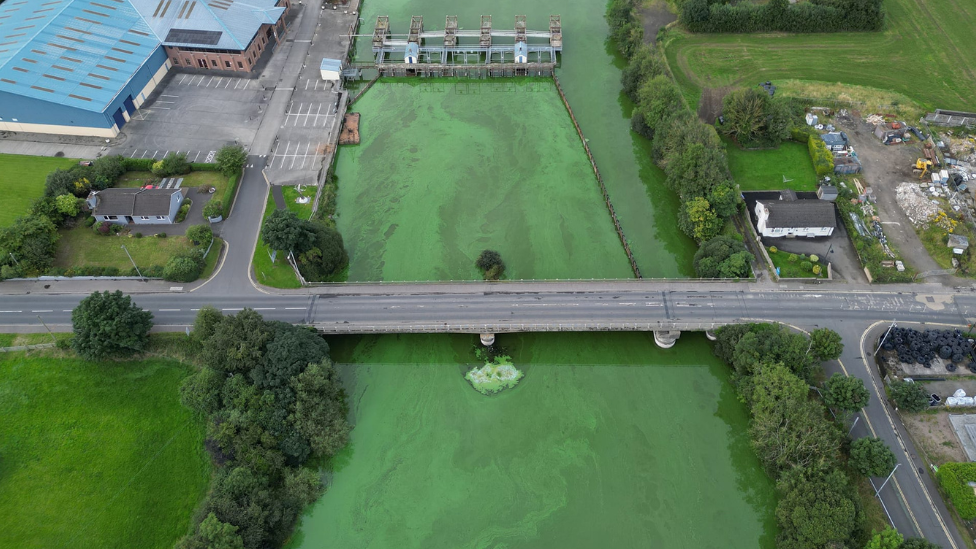
- Published2 August 2024
